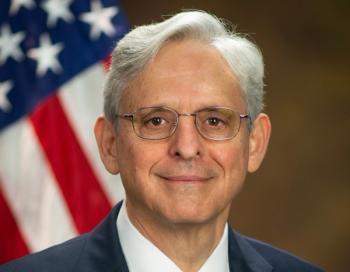
Ian Manners, chief strategy officer of TailorMed, talked with us about the company’s work with health systems and lessons for hospitals in helping patients manage big medical bills.

Ian Manners, chief strategy officer of TailorMed, talked with us about the company’s work with health systems and lessons for hospitals in helping patients manage big medical bills.

The final two months before the next congressional session is known as the ‘lame duck’ period, but health systems want lawmakers to deliver on some key priorities.

There are practical ways to apply digital care solutions to improve health for all.

Researchers found an automated, 30-day text messaging program engaged patients and lowered their odds of needing acute care services.

Federal agencies say a cybercrime group known as the Diaxin Team has hit healthcare organizations with ransomware and stolen patient data.

The process of replacing an age-old practice - hand-filled paper notebooks - remains not just a technical challenge but also a social one.

Northwestern Memorial Healthcare announces its next CEO, HCA Virginia selects the CEO of a Richmond hospital, Atrium Health hires a chief science officer, and others take new roles.

The system says there’s no evidence of fraud or misuse of information. The breach stems from an online tool meant to track patient trends, and other health systems have reported similar incidents.

The VA said last week it is delaying the rollout of the new system until June 2023. The VA said it is working with Oracle Cerner to address a host of issues, including some which could affect patient safety.

Health systems are struggling with labor shortages and higher costs. Leaders say they are boosting pay and offering incentives to recruit and retain workers, a Kaufman Hall report finds.

The health system continues to deal with a cyberattack that has affected some systems and led to some patient appointments being canceled or rescheduled.

At a health conference, executives unveiled new solutions and sent a message that healthcare is the company’s focus.

The new system has been plagued with problems and drawn the ire of lawmakers. The Department of Veterans Affairs says it’s working with Oracle Cerner to resolve the issues.

There are ways to address burnout, while improving productivity and enabling greater focus on the patient – and they all center around technology used in the practice.

The system says it is working with law enforcement and cybersecurity experts. Some hospitals have rescheduled patient appointments and some systems are offline.

Only about one-third of consumers shop around, an AKASA survey found. However, younger Americans are more apt to do their homework on healthcare prices.

The excessive use of repeated text hampers patient care, because doctors are spending time poring over notes to determine the information that is accurate.

Implementing digital health solutions can help hospitals attract and retain more patients amid increasing competition from industry disruptors.

Bertagnolli is the first woman to lead the institute. President Biden has been choosing women for key science roles in his administration.

The Pennsylvania system is aiming to improve health in the Plain communities. WellSpan’s leaders talked with Chief Healthcare Executive about the challenges and lessons of working with the Amish.

The nonprofit system said it has taken some systems offline, and that could include some electronic health records.

The Pennsylvania system sets tangible goals and is seeing progress. WellSpan’s Mike Seim spoke with Chief Healthcare Executive about closing disparities.

They want Attorney General Merrick Garland to stop threats targeting providers of gender-affirming healthcare. Social media platforms also must curb the rhetoric that incites threats and attacks, they said.

Hospitals and health systems can develop digital and mobile strategies that meet their unique needs.

A report by athenahealth finds a gender gap in the use of virtual care. Jessica Sweeney-Platt of athenahealth talked with Chief Healthcare Executive about telemedicine.